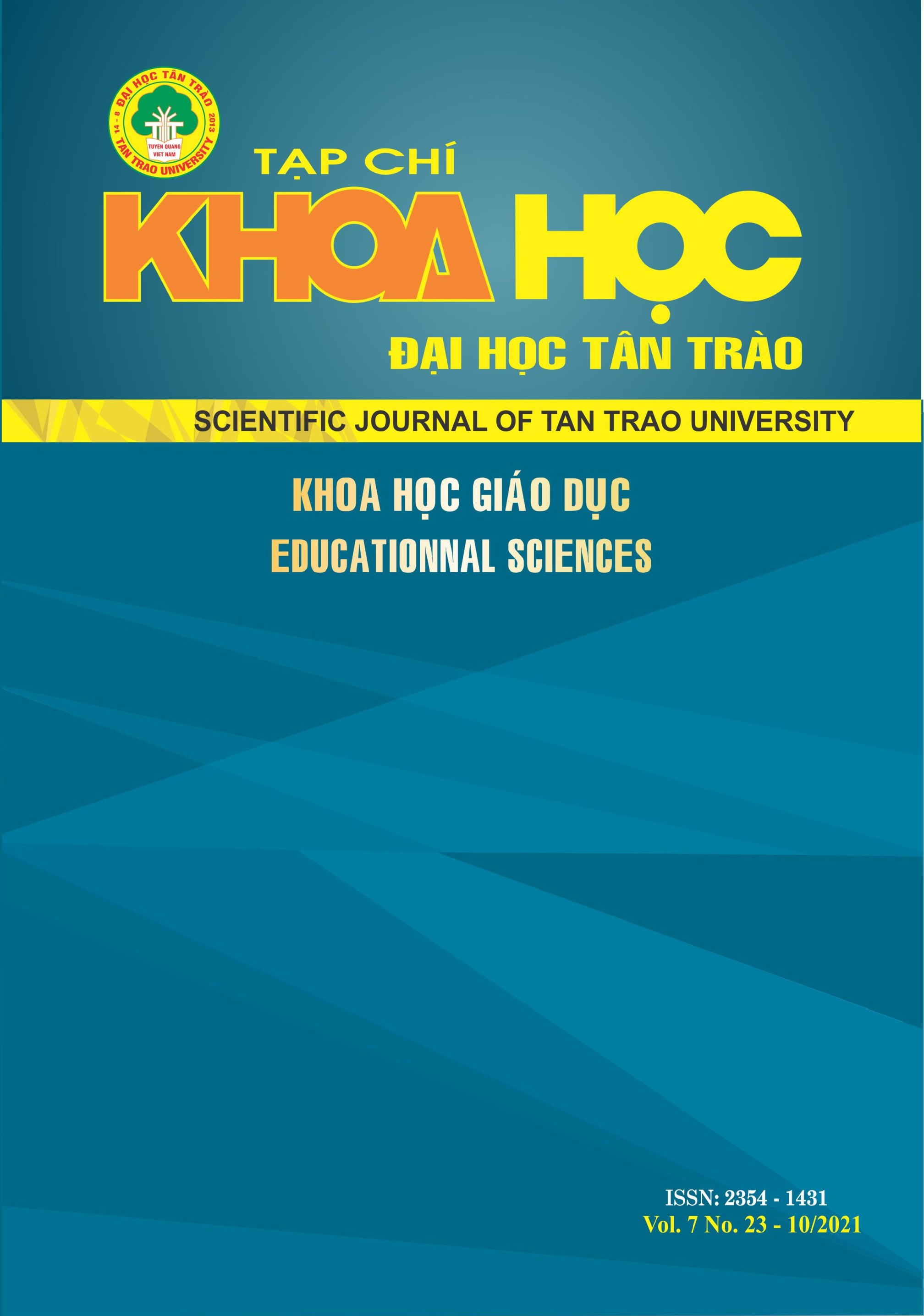FACTORS AFFECTING THE DEVELOPMENT OF CAPACITY ORGANIZATION OF EXPERIENCE ACTIVITIES FOR STUDENTS OF PARTNERAL EDUCATION TAN TRAO UNIVERSITY
DOI:
https://doi.org/10.51453/2354-1431/2021/626Keywords:
Influencing factors, Experimental activities, Organizational capacity, Students, Tan Trao University.Abstract
This study is conducted to indicate the theoretical and practical basis of the influence of these factors on the development of the competency to organize creative experience activities for students in primary education at Tan University. The results of data analysis show that the most influencing factor is student activeness; Teaching competency , the competency of teachers to organize experience activities. Other factors such as facilities, learning materials; time; coordination among educational forces… has also had a lesser effect.
Downloads
References
[1] Ministry of Education and Training. (2018). General education program, Experiential activities and experiential activities, career guidance.
[2] Development strategy project of Tan Trao University in the period of 2018 - 2025, orientation to 2030.
[3] Circular No. 32/2018/TT-BGDDT dated December 26, 2018 of the Minister of Education and Training on the Promulgation of the general education program.
[4] Hanh, H. M. (2016). Developing capacity for social activities for students of pedagogical universities in the northern mountainous region in training under the credit system. Thai Nguyen University Publishing House.
[5] Tan Trao University. (2018). Decision No. 03/NQ-HDT, dated December 21, 2018 Tan Trao University development strategy for the period 2018-2025, with orientation to 2030.
[6] Lien, N. T. (2016). Organize creative experiential activities in high schools. Education Publishing House, Hanoi.
[7] Kien, H. C., Hang, N. T. T., Hong, D. T. B., Thanh, D. (2020). Design experience activities with the theme “Creating Art” for middle school students in the career-oriented experience program. Education Journal, 490:49-53.
Downloads
Published
How to Cite
Issue
Section
License

This work is licensed under a Creative Commons Attribution-ShareAlike 4.0 International License.
All articles published in SJTTU are licensed under a Creative Commons Attribution-ShareAlike 4.0 International (CC BY-SA) license. This means anyone is free to copy, transform, or redistribute articles for any lawful purpose in any medium, provided they give appropriate attribution to the original author(s) and SJTTU, link to the license, indicate if changes were made, and redistribute any derivative work under the same license.
Copyright on articles is retained by the respective author(s), without restrictions. A non-exclusive license is granted to SJTTU to publish the article and identify itself as its original publisher, along with the commercial right to include the article in a hardcopy issue for sale to libraries and individuals.
Although the conditions of the CC BY-SA license don't apply to authors (as the copyright holder of your article, you have no restrictions on your rights), by submitting to SJTTU, authors recognize the rights of readers, and must grant any third party the right to use their article to the extent provided by the license.


